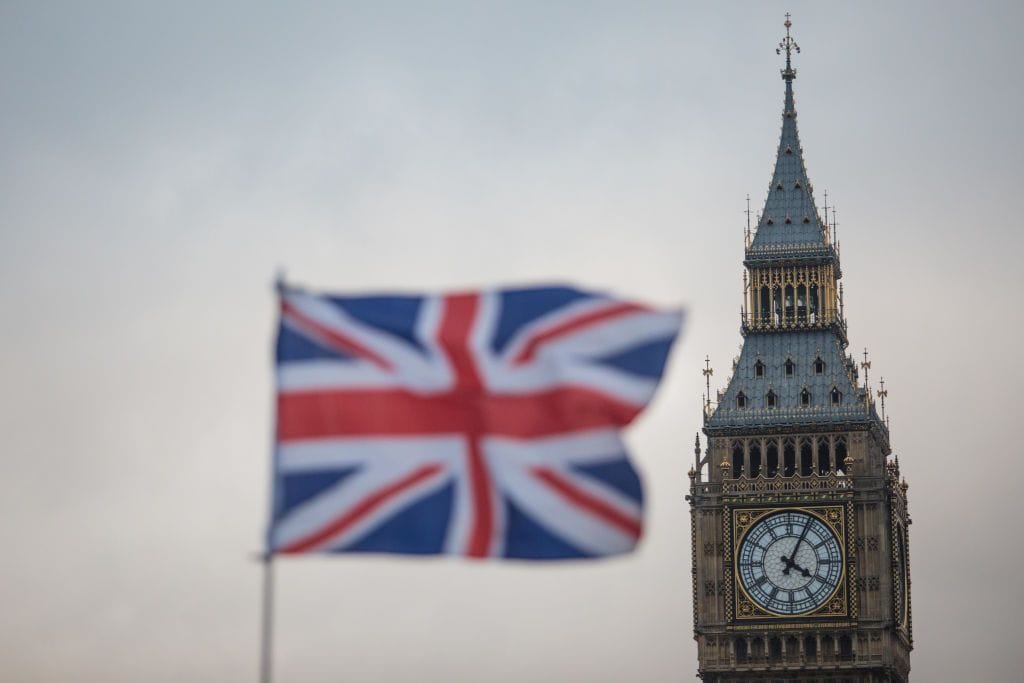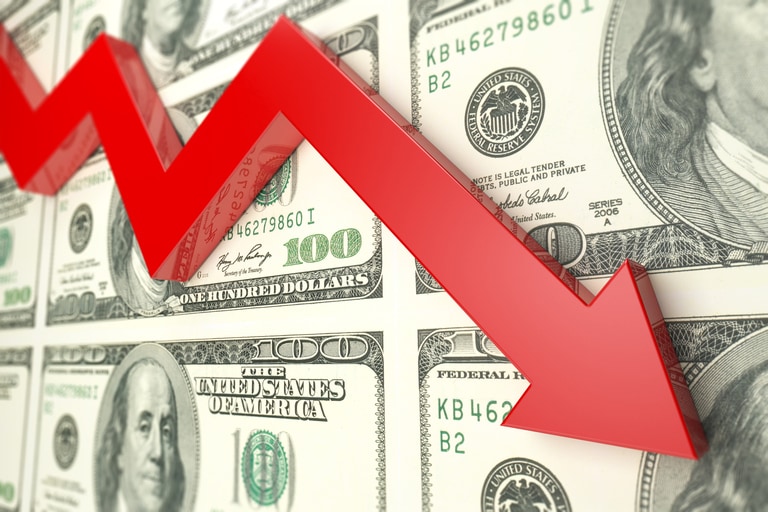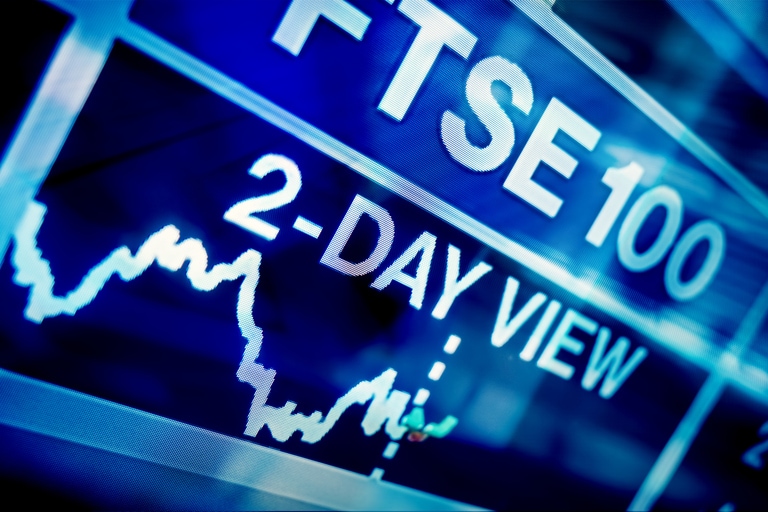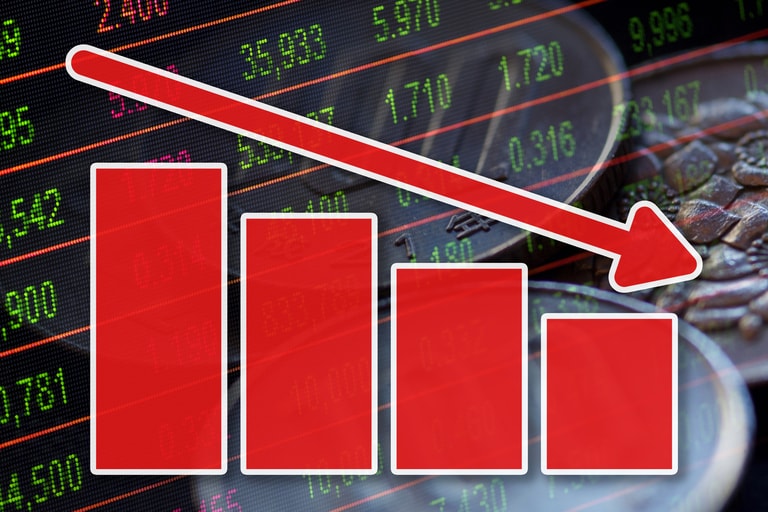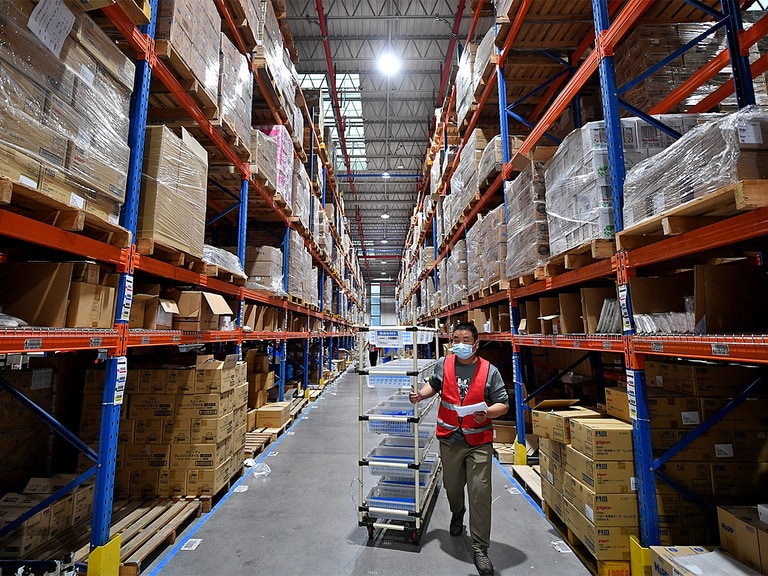Despite making yet another record high in the Nasdaq yesterday, US markets rolled over into the close, closing sharply lower as concerns that the continued rise in infection cases will prompt more US states to push back their reopening plans.
California followed Texas and Arizona in shutting downs bars, restaurants and cinemas, as hospitalisations soared. There was also increasing nervousness about the fragility of any recovery ahead of the start of US earnings seasons later today. In Asia, markets were also a little twitchy over rising tension between the US and China over China’s actions in the South China sea, while Hong Kong tightened its own restrictions over a further rise in cases.
The latest Chinese trade data did appear to offer some optimism that the Chinese economy was continuing its slow road back from its February lockdown, with imports rising 2.7% in June, against an expectation of a 9% decline, the first positive figure for imports this year, while exports also rose a better than expected 0.5%. This could bode well for China Q2 GDP data which is due out on Thursday, and is expected to see a rather optimistic quarterly bounce back of 9.5%. This improvement in Chinese data doesn’t appear to have offered much in the way of a catalyst for a recovery in Asia markets, with the Nikkei 225 closing sharply lower.
Markets in Europe have taken their cues from the slide in US and Asia markets opening lower this morning after the latest UK GDP data for May showed that the economy rebounded on a monthly basis by a very disappointing 1.8% in May, well below expectations of a 5.5% rebound with the index of services really disappointing at a pretty miserable 0.9%.
Both manufacturing and industrial production numbers for May showed a decent rebound, with recoveries to 8.4% and 6% respectively, however the services sector was hugely disappointing, with index of services showing a 0.9% improvement when a more robust 4.8% number was expected. Given that services make up 75% of the UK economy it is becoming ever clearer that the road back to recovery is going to be a long and arduous one. One important caveat is that this sort of monthly data particularly relating to GDP is and services is notoriously difficult to collate, particularly at times like this, which means we could see significant subsequent revisions in the coming months. As such it should be viewed very much from within that prism, in the same way someone throws darts at a dartboard blindfolded.
The latest BRC retail sales numbers for June were more promising, rising 10.9% as a rise in online shopping saw some pent-up post lockdown demand released. Supermarket sales were a particularly strong area, however the more traditional areas of high street shopping remained weak, and there is a risk the upcoming government insistence on the wearing of face masks in stores, could hinder any recovery in this regard.
At a time when the economy is so fragile, it seems rather counterintuitive to insist on face coverings in shops, where human interaction can be kept to a minimum due to a strict entrance policy, without insisting on the use of them in restaurants and pubs, where human interaction is much greater, and the risk of contracting Covid-19 is much higher. You can’t on the one hand say its altruistic to wear a mask in a shop, where the risk of infection is lower, and then say that its ok not to wear a mask in pubs, restaurants or bars.
In a further sign that online shopping appears to be the way to go, Ocado this morning released its latest first-half numbers and as expected the company saw a big surge in revenues. Ocado has had a number of problems over the years, but the rise in its share price hasn’t been one of them and has been one of the big winners of the ongoing Covid-19 disruption of the UK economy, despite it never having made a profit. Today hasn’t been any different, with a pre-tax loss of £40.6m. Ocado’s strength lies in its unique technology which has received a significant boost as a result of the coronavirus pandemic.
Today’s first-half numbers showed that revenues rose 27%, despite the company temporarily closing its website in order to deal with the increased demand in online traffic, while it also saw a first-half operating loss of £17.7m. The company said it was positive on the outlook, however declined to offer any guidance and said it plans to spend £600m on capital expenditure this year, from the proceeds of its recent £1bn capital raising.
Soft drinks and tonic maker Fevertree announced this morning that it has seen a solid start to the year. Off trade sales for the 12-week period to 12 June saw a 34% increase year on year, as alcohol consumption amongst consumers went up during lockdown, with the US showing a particularly strong performance. On trade sales were weaker as a result of the various lockdowns closing bars and other licensed premises. Fevertree also announced the acquisition of Global Drinks Partnership, its sales agent in Germany for €2.6m.
Online electrical retailer AO World also reported its final results for the year ended March 2020, which won’t have captured the likely upsurge in business since the end of March lockdown. Total revenue still increased 15.9%, to over the £1bn, with the UK business contributing to the bulk of that, while operating losses slowed to £3.8m.
In terms of the future the company is optimistic on the revenue front, and expects to achieve positive EBITDA in Germany on revenues of €250m. as far as the UK economy is concerned while revenue is currently ahead of expectations, white goods demand could be affected by a slower recovery in the UK economy, the housing market, as well as uncertainty over the end of the Brexit transition period t the end of the year.
Among the worst performers on the FTSE 100 in early trade is Halma, the technology company, which has seen its share price fall sharply in early trade after reporting full year numbers in line with expectations. Revenues for the year ended 31 March 2020 rose 11% to £1.34bn, while statutory profits before tax rose 8% to £224.1m. The dividend was increased by 5%, however the company outlook was a little disappointing, with revenue expected to be 4% lower in Q1 from a year ago, with profits for 2021 also expected to be 5% to 10% lower than 2020.
Cyber technology group, and owner of AVG antivirus Avast is also sharply lower after hitting a new record high yesterday, on the back of a revenue and price upgrade from Peel Hunt at the end of last week, even though the broker still rates the stock as a sell.
The pound is a little bit softer on the back of this morning’s UK economic data, which can only be described as disappointing at best. If the Bank of England is looking for early signs of a recovery then they must have a very strong microscope, or they must be hoping that the June numbers will be much improved. UK gilt yields have also softened further as markets once again mull the prospect of a rate cut in September.
US markets look set to open modestly higher after yesterday sharp sell-off, as investors look ahead to the latest Q2 numbers from JPMorgan Chase, Citigroup and Wells Fargo. JPMorgan could do well given its more diverse operations, however investors will be looking to see whether these key US bellwethers set aside further provisions in the face of the big spikes seen in US unemployment, and the rising number of Covid-19 cases that are currently being seen across, a wide swathe of US states right now.
Another plus point for US banks will be the fees they received for processing the Paycheck Protection Program for US businesses. It is being estimated that US banks that are part of the scheme have made up to $24bn in fees, despite bearing none of the risk in passing the funds on from the Small Business Administration. We could also see announcements of job losses with talk last week that Wells Fargo could be about to announce thousands of cuts due to its higher costs.
Lockheed Martin is also likely to be in focus after China said it would impose sanctions on the company.
US CPI inflation numbers for June are expected to show a significant uptick to 0.6% from 0.1%.
CMC Markets erbjuder sin tjänst som ”execution only”. Detta material (antingen uttryckt eller inte) är endast för allmän information och tar inte hänsyn till dina personliga omständigheter eller mål. Ingenting i detta material är (eller bör anses vara) finansiella, investeringar eller andra råd som beroende bör läggas på. Inget yttrande i materialet utgör en rekommendation från CMC Markets eller författaren om en viss investering, säkerhet, transaktion eller investeringsstrategi. Detta innehåll har inte skapats i enlighet med de regler som finns för oberoende investeringsrådgivning. Även om vi inte uttryckligen hindras från att handla innan vi har tillhandhållit detta innehåll försöker vi inte dra nytta av det innan det sprids.
